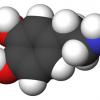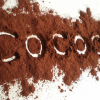http://www.newscient...ting-drunk.html
Liang first tested whether DHM blocks the clumsiness and loss of coordination caused by drinking too much. To do this, she measured how long it took for treated rats to right themselves after being laid on their backs in a V-shaped cradle.
After she injected rats' abdomens with a dose of alcohol proportionate to the amount a human would get from downing 15 to 20 beers in 2 hours by a human, they took about 70 minutes, on average, to right themselves. However, when an injection of the same amount of booze included a milligram of DHM per kilogram of rat body weight, the animals recovered their composure within just 5 minutes.
DHM also stopped rats in a maze from behaving in ways resembling anxiety and hangovers. Rats given heavy doses of alcohol cowered away in corners of the maze, whereas those given the extract with their alcohol behaved normally and were as inquisitive as rats given no alcohol at all, exploring the more open corridors of the maze.
Finally, DHM appeared to discourage rats from boozing when they had a free choice between drinking a sweetened solution of alcohol or sweetened water. Over a period of three months, rats will normally get addicted to increasing volumes of the hard stuff. Rats given DHM, though, drank no more than about a quarter of the amount that the "boozers" eventually built up to. Moreover, boozy rats that had worked up to the higher levels suddenly dropped down to a moderate intake when given DHM after seven weeks.
All the benefits of DHM were lost instantly when Liang also gave the rats a drug called flumazenil, which is known to block receptors in the brain for a neurotransmitter called gamma aminobutyric acid (GABA). According to Liang, this proved that DHM works by stopping alcohol from accessing the same receptors. This, she says, explains why DHM kept the rats sober even when they had huge amounts of alcohol in their blood.
Good idea?
"This supports other data that GABA receptors are key in the actions of alcohol and that targeting this interaction is a viable approach to reducing alcohol intake," says David Nutt of Imperial College London, former head of the British government's advisory committee on drugs. "Let's hope it's safe to use in humans."




























































